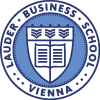[vc_row row_type=”row” type=”full_width” text_align=”left” background_image_as_pattern=”without_pattern” padding_top=”50″ padding_bottom=”50″][vc_column width=”1/1″][vc_column_text]Harvard MOC affiliate and LBS faculty member Professor Pablo Collazzo is convening conference track on International Competitiveness at the prestigious 2016 EURAM conference in Paris [/vc_column_text][vc_separator type=”normal” position=”center”][vc_column_text]LBS faculty members are cordially invited to submit their papers on competitiveness-related topics to this high-level gathering of international management scholars [/vc_column_text][vc_empty_space height=”50px”][vc_single_image image=”19437″ alignment=”center” border_color=”grey” img_link_target=”_self” img_size=”full”][vc_empty_space height=”32px”][vc_column_text]Conference track: International Competitiveness (T07_03)
Track conveners: Pablo Collazzo, WU Vienna University of Economics and Business and Lauder Business School; Raquel Meneses, University of Porto; Aron Perenyi, Swinburne University of Technology
Corresponding address: [email protected]
Deadline for paper submission: January 12, 2016 (2pm CET)
Conference organizers: European Academy of Management (EURAM) and Université Paris Est-Créteil – Val de Marne (UPEC)
Conference dates: June 1-4, 2016, Paris
Conference website: http://www.euram-online.org/annual-conference-2016.html[/vc_column_text][vc_empty_space height=”32px”][vc_column_text]Track description
The track invites to reflect on the determinants of competitiveness from a bottom-up, firm-level perspective. A focus on competitiveness centered on firms remains underexplored in the management literature. The drivers of national and regional competitiveness building on the interplay of firms, clusters, sub-national units and entire economies bring different yet complementary views up for academic discussion, with relevant theoretical and practical implications.
The track aims to unveil the ultimate determinants of a nation’s or region’s productivity, rooted in the strategies and operating practices of locally-based firms, the vitality of clusters, and the quality of the business environment in which competition takes place. Submissions addressing the roles that firms, industry associations, universities, and other institutions play in competitiveness are encouraged. In modern international competition, each of these institutions has an important role in economic development that is shifting. Moreover, the process of creating and sustaining an economic strategy for a nation or region is a daunting challenge. Submissions are likely to explore not only theory and policy but also the organizational structures, institutional structures, and change processes required for sustained improvements in competitiveness.
Opportunity for peer-reviewed publications
Books publishers and special issues that may welcome the track’s best papers:
• Competitiveness Review (Emerald)
• International Journal of Competitiveness (Inderscience)
• Additionally, the corresponding proponent is currently discussing a (text)book proposal, which could potentially include the topic’s best papers.
References
Bouncken, R., Gast, J., Kraus, S., & Bogers, M. (2015). Coopetition: a systematic review, synthesis, and future research directions. Review of Managerial Science, 9(3), pp. 577-601.
Ketels, C. (2013). Recent Research on Competitiveness and Clusters: What Are the Implications for Regional Policy?. Cambridge Journal of Regions, Economy and Society, 6(2), pp. 269-284.
Martin, R., & Sunley, P. (2003). Deconstructing clusters: chaotic concept or policy panacea?. J Econ Geogr, 3(1), pp. 5-35.
Porter, M. (2008). On Competition. Harvard Business School Press.
Waheeduzzaman, A.N.M. (2011). Competitiveness and convergence in G7 and emerging markets. Competitiveness Review, 21(2), pp.110 – 128.[/vc_column_text][/vc_column][/vc_row]


Recent Comments